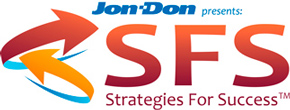 In my last two posts I’ve looked at two of the Three A’s my doctor friend at the Kansas City airport talked about. The first one was “Ability” and the second “Accessibility”.
In my last two posts I’ve looked at two of the Three A’s my doctor friend at the Kansas City airport talked about. The first one was “Ability” and the second “Accessibility”.
This brings us to the third: Affable. So just how “affable” are you? In everyday terms “affable” means pleasant, friendly, or sociable.
In the opinion of my airport acquaintance Affability is the single most overlooked area of training in medical schools. He believes there is little question about the ability of our medical schools to teach physicians how to diagnose and treat illnesses.
But what concerned my fiend is these schools don’t teach their med students how to be affable to their patients. In other words, doctors don’t have a clue on how to build “likeability” and/or connect with their clients. (This is not a surprise to the rest of us!)
The lack of Affability can have serious consequences. In his book, Blink: The Power of Thinking Without Thinking, author Malcolm Gladwell writes, “What comes up again and again in malpractice cases is that patients say they were rushed or ignored or treated poorly.” Alice Burdin, a leading medical malpractice attorney, observes, “People just don’t sue doctors they like.”
Think about it. How do you feel when your doctor talks to you in medical terms that you clearly don’t understand or when he addresses you with an air of superiority or arrogance? Is he more interested in informing you with his knowledge or just impressing you? And do you view him as Able, Accessible and Affable … or just arrogant?
So how often do we let “our Ability get in the way of our Affability” by talking in technical, industry-specific, highfalutin terms that only an industry insider or Ph.D. would understand? It might make you feel smart and important but how does it make your customer feel? Are you connecting with your customers when you talk this way? Or to them are you just another egomaniac doctor who’s speaking a language they don’t understand?
How many times do we let our efforts to be Accessible interfere with our Affability by answering our mobile phone trying to prove our Ability while conversing with our customer? What message is that sending her? That we’re so important that people have to reach us on our mobile phones to get immediate answers to their pressing questions? OR are we sending the message that she’s second in line for our attention? So if you want to see a pleasantly surprised look on your customer’s face don’t answer your mobile phone the next time it interrupts your conversation with her.
Maybe we need to re-examine the real reason for the call backs, the re-do’s or the unhappy customers. Was it that we didn’t do a good job or could it be that our customer felt we didn’t treat her well? It makes you wonder how many broken business relationships and how many lawsuits that have been brought against us could have been avoided if we had spent more time working on our Affability, and not just on our Ability and Accessibility!
So as we spend thousands of dollars training ourselves and our people on how to do their jobs better from a technical point of view. Great! But just think- as we spend thousands more on the latest “direct connect” technology maybe we should invest a few dollars on the softer side of our jobs…the Affable side. Maybe what we need are more classes and workshops that help us improve our “bedside manner”. (Sounds like SFS!)
Chuck Violand (more about Chuck)
SFS Instructor
CEO Violand Management Associates
